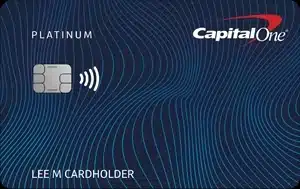Capital One Corp.’s chief executive late Thursday struck back against concerns that the banking giant’s proposed acquisition of Discover Financial Services will dampen competition in banking and payments. “The facts will show there are no barriers to entry in the credit card business,” declared Richard Fairbank as he fielded questions about the proposed merger during an extended session with equity analysts to discuss Capital One’s March-quarter results.
As analysts on the call raised concerns that McLean, Va.-based Capital One’s proposed $35-billion bid for Discover would be seen by regulators and other authorities as a move to neutralize a rival, Fairbank responded that “we have a very compelling case for approval.” The deal, he argued, “will increase competition for banks and payments companies.” At the same time, the combination will create a more powerful rival for Visa and Mastercard, Fairbank said.
Capital One has submitted an application to the Federal Reserve and the Office of the Comptroller of the Currency to win the regulators’ blessing for the combination. Meanwhile the deadline for comments was extended by both regulators Wednesday from April 26 to May 31. “It’s standard practice at the Fed to extend [deadlines] on banking mergers,” Fairbank contended, to gain more time for analysis. News of Capital One’s offer for Riverwoods, Ill.-based Discover broke in mid-February.

In the regulators’ analysis, Fairbank argued, the competitiveness of payments networking and processing will emerge, a state of affairs, he argued, that will only grow more intense with the merger. “We have to compete every day for every transaction,” Fairbank told the analysts. “Consumers can choose to use another choice entirely, such as cash or [buy now, pay later].”
But Fairbank also argued the combination, far from dampening competition in finance and payments, will heighten it. With the regulatory filings, he added, Capital One argues the deal “will increase competition for banks and payment networks.” Regarding networking, he pointed out by way of example, “we’re not currently in that business.” Discover’s network processes transactions globally for the Discover card, while the company’s Pulse network is a major player in debit card traffic.
By contrast, Discover represents a rare opportunity to enhance value for Capital One, Fairbank said. “Discover is a singular opportunity, a franchise of more than 100 million customers, a compelling opportunity for merchants and customers,” he argued. “We’re very excited about the Discover deal.”
In other remarks, Fairbank reminded analysts a rule capping late fees at $8 will take effect May 14. The rule, devised by the Consumer Financial Protection Bureau, will force card issuers to reduce late-payment penalties that typically run to $30 or more. “There will be significant impact on our [profit-and-loss statement],” Fairbank predicted, but added, “it will be mitigated over a few years.”





